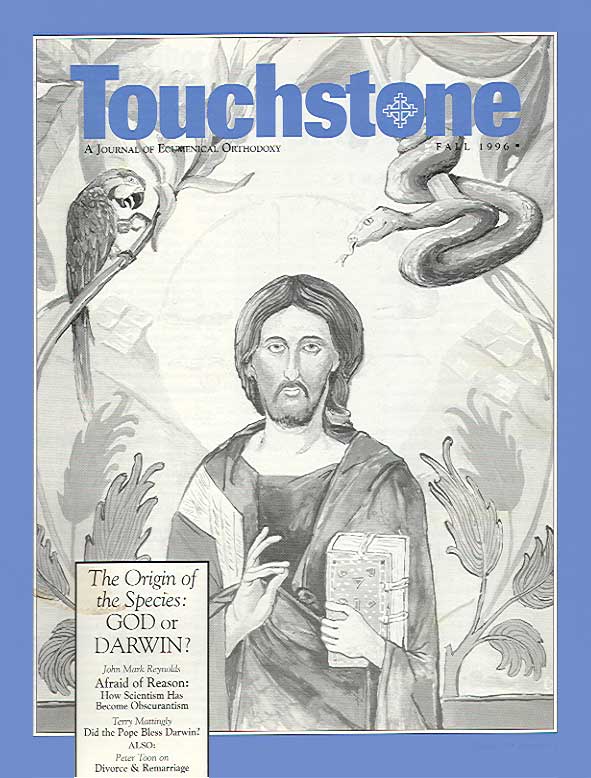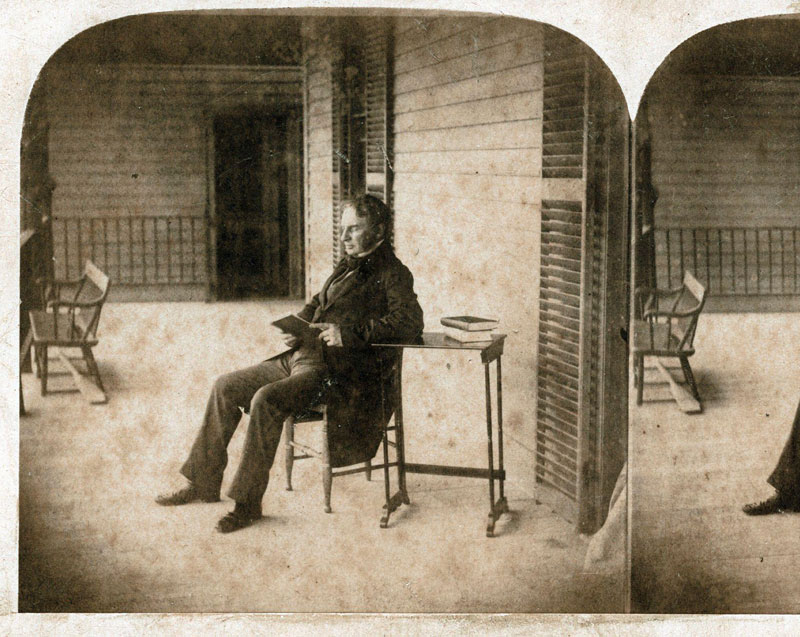He Did Become Man
A decade or so ago there appeared a new translation of the Divine Liturgy of Saint John Chrysostom largely produced by the Holy Cross Greek Orthodox Seminary in Massachusetts. It was a dreadful piece of work from every perspective.
As one looks over the names of those credited with the effort, it is not difficult to see why this should be so; it contains scarcely a single person who had any business serving on a translation committee. Indeed, I have heard a couple of those folks speak in public, and their everyday English is not better than barely adequate. Even among those few translators who do speak English comfortably as a native tongue, there is no evidence of developed skills in the more refined rhetorical complexities of the language. So it is not surprising that the Holy Cross translation, now in use for more than a decade in the Greek archdiocese, is positively abysmal, nor is it marvelous that some priests would prefer to stick with the original Greek. Personally, I would.
One could wish, moreover, that mere linguistic ineptitude were the translation’s only shortcoming. The major complaint to be raised is not simply its style, but rather its clear, if still inchoate, adherence to “politically correct” usage. Traditionally, you see, Eastern Orthodox Christians, along with all other bodies that use the Nicene Creed, have proclaimed that in the Incarnation the eternal Son of God “for us men and for our salvation . . . became man.” In the Holy Cross version, however, the word men was dropped from that creedal statement, out of an unwarranted respect for the feelings of those unhappy with the word men being used for human beings.
That was, I submit, a step in the wrong direction. At the very least, it showed some very shallow thinking within the faculty of Holy Cross Seminary and a lamentable inattention to dogma within the Orthodox hierarchy. We are talking here about an actual change in the Nicene Creed, and Orthodox bishops are supposed to be sensitive on that subject. Oh, where was Saint Mark of Ephesus this time around?
Evidently unchallenged, that initial aberration took the next logical step a couple of years ago with yet another translation, a “trial version” submitted to the Standing Conference of Orthodox Bishops in the Americas (SCOBA). Invariably copying the crudeness of the Holy Cross version, this one ingressed even further in the direction of political correctness by altering the Creed’s affirmation that the Son of God “was made man” to “became human.” The identical change was made in several other places where the Divine Liturgy speaks of the Incarnation.
Fortunately for the Orthodox Church, however, this time the translators overplayed their hand, for there was spontaneous outrage from both clergy and congregations as soon as the new version became known. Several bishops spoke openly against it, and others, apparently a large number, privately expressed a resolve to kill the thing. Except for a few complaints that I was being too harsh, my detailed criticism in The Christian Activist, with a circulation of 65,000, has so far gone unanswered. The SCOBA project now seems to be dead, a circumstance at which the righteous may rejoice.
Much as I truly wish someone would, I am not overly surprised that no champion has yet come forward, in an Orthodox publication, to defend “became human” as a proper translation. To substitute the feeble adjective human for the powerful noun man represents a major break with the sense of the Creed. The Greek active aorist participle enanthropesanta is a Christian term, unique and specifically crafted to describe the Incarnation. Its faithful translation requires not only a resolve to avoid the faintest influence from any non-Christian ideology, but also the strictest possible adherence to the older, traditional translation of the Creed.
The Latin, for example, broke the Greek word down into its components and arrived at homo factus est. It did not employ the adjective humanus, but the noun homo, “man.” In fidelity to that rendering, the traditional English translations followed suit.
“Human” is a static, descriptive word, while the active participle enanthropesanta is not a description but an identifying deed. Truth to tell, there were early heresies that would have been satisfied to describe Christ as “human” without saying that he “became man.”
The intention of the Nicene Creed is to do much more than describe Christ. It affirms the single and singular divine act by which God’s Word became a specific, individual member of the human race—that God‘s eternal Son is now man—that he has forever entered human history as the defining participant in its destiny.
—Patrick Henry Reardon
Patrick Henry Reardon is pastor emeritus of All Saints Antiochian Orthodox Church in Chicago, Illinois, and the author of numerous books, including, most recently, Out of Step with God: Orthodox Christian Reflections on the Book of Numbers (Ancient Faith Publishing, 2019).
subscription options
Order
Print/Online Subscription

Get six issues (one year) of Touchstone PLUS full online access including pdf downloads for only $39.95. That's only $3.34 per month!
Order
Online Only
Subscription

Get a one-year full-access subscription to the Touchstone online archives for only $19.95. That's only $1.66 per month!
bulk subscriptions
Order Touchstone subscriptions in bulk and save $10 per sub! Each subscription includes 6 issues of Touchstone plus full online access to touchstonemag.com—including archives, videos, and pdf downloads of recent issues for only $29.95 each! Great for churches or study groups.
Transactions will be processed on a secure server.
more from the online archives
calling all readers
Please Donate
"There are magazines worth reading but few worth saving . . . Touchstone is just such a magazine."
—Alice von Hildebrand
"Here we do not concede one square millimeter of territory to falsehood, folly, contemporary sentimentality, or fashion. We speak the truth, and let God be our judge. . . . Touchstone is the one committedly Christian conservative journal."
—Anthony Esolen, Touchstone senior editor










